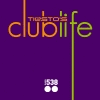The Therapeutics Initiative Podcast
Medicine
The Therapeutics Initiative podcast is a biweekly presentation where practitioners can get a healthy dose of evidence based drug therapy information. The podcast is presented by Dr. James McCormack, Professor in the Faculty of Pharmaceutical Sciences at The University of British Columbia and Dr Michael Allan, Assistant Professor in the Department of Family Medicine at the University of Alberta.For more about us or the Therapeutics Initiative visit our website at www.ti.ubc.ca. (Author: Dr. James McCormack and Dr. Michael Allan)
| Subscribe | Subscribe via iTunes™ |
| Author | Dr. James McCormack and Dr. Michael Allan |
| Feed | http://ti.ubc.ca/podcasting/iTS/ticast.rss |
| Site | http://ti.ubc.ca/ |
| Badge |

|
Recent episodes from The Therapeutics Initiative Podcast
-
Published: Sep 10, 08In our 20th episode we try to answer our accumulating listener mail. We review questions around cardiovascular disease risk-benefits and try to demystify the calculators. Listeners question antidepressants: when they should start to work, when to change dose/type and their use for chronic pain. Other issues include stopping bisphosphonates, addressing the placebo effect and uncertainties with industry funded trials. In the end, Mike talks about Giraffes and James becomes spastic.
-
Published: Sep 3, 08In episode 19 we consider the approach to patients with a low bone mineral density and increased fracture risk. We review the various options in treatment, which ones have evidence of non-vertebral fracture and the absolute benefits of those treatments. We discuss reliability of monitoring bone density of patients on therapy and the duration of therapy.
-
Published: Aug 27, 08In episode 18 we consider the approach to questions of bone density and fracture risk. We use a series of cases to work through the risk of osteoporosis (using a simple tool) and help us decide on bone mineral density testing. We discuss initial options in the prevention of fractures including weight-bearing exercise, Calcium and Vitamin D (and its additional advantages).
-
Published: Aug 20, 08In episode 17 we look at managing the treatment of depression once we’ve started a medication. We discuss the patient conversations necessary for initiating treatment including the patient perception of the illness, expectations and potential side-effects. We debate the quandaries around starting doses, when or if to increase, duration of therapy and relapse prevention. Although we use available evidence, we acknowledge some of our advice is Best-Guess based medicine.
-
Published: Aug 13, 08In episode 16 we look at initiating treatment for depression. We briefly review screening and the diagnosis of depression before discussing the non-drug treatment options (therapy, exercise, sleep hygiene). We search for the anti-depressant of choice (being any) and end up deciding to tailor the choice based on factors such as side-effect profile, targeted symptoms, and cost. Although we stress the importance of regular follow-up, James refuses to come to see Mike or Adil.
-
Published: Aug 6, 08In episode 15 a guest assists us in addressing the evidence suggesting anti-depressants are not as effective as believed. We review some biases in the anti-depressant research including publication bias (how good studies are published more than bad studies). We discuss how the benefits of anti-depressants over placebo increase as the severity of depression worsens. James prompts us to explain the effectiveness of the medications; although we dodge, some vague commitments do manage to escape.
-
Published: Jul 30, 08In episode 14 we attempt to answer some of mail received from listeners. We talk about using the evidence to promote shared decision-making. We review calculating risk, the limitations of risk calculators and presenting the data in the positive (chance of not having an event). We address heart disease as the leading cause of mortality (despite advancement in treatment) and emerging discussions of statin use in children (age ≥8). We unwrap these enigmas to create more confusion.
-
Published: Jul 23, 08In our 13th episode, we discuss smoking cessation. We present the impressive benefits in hard outcomes when people stop smoking. We then go through the list of interventions, from brief advice to the pharmaceutical options of nicotine replacement, two anti-depressants (Buproprion or Nortiriptyline) and the newest agent, Varenicline. Dosing, cessation rates and adverse events are reviewed (for medications, not cigarettes: that dose is zero).
-
Published: Jul 16, 08In our 12th episode, we divide and conquer the remaining points around hypertension. In section A, we talk about monitoring blood pressure: frequency, reliability and home monitoring are all discussed. In section B, we talk about the potential side-effects of different hypertension therapies and the need to monitor for biochemical-metabolic effects. In the end, Mike is hyper and James is tense but both need therapy.
-
Published: Jul 9, 08In our eleventh episode, we discuss the laundry list of the remaining hypertensive medications and their evidence. The issue of blood pressure as a surrogate marker is discussed and we encourage clinicians to focus on hypertensive agents that effect patient oriented outcomes. While the evidence is reasonable for Ca+ Blocker, we put Beta-blockers low down (and Atenolol off) the list with Alpha-blockers and a few others. We have few laughs along the way, primarily at our lack of humor.
-
Published: Jul 2, 08In our tenth episode, we discuss our second choice of hypertensive medication agent, the ACE inhibitor. We review dosing and renal protection (briefly) before agreeing our choice is based mostly on once a day adminstration and costs. We look at substituting with ARBs but not combining with ARBs (with possible exception of co-morbid CHF). Throughout the podcast, James disagrees with Mike on a variety of issues, more on principle than fact.
-
Published: Jun 25, 08In our ninth episode, we interrupt our regularly schedule podcast to talk about the recently released ACCORD and ADVANCE trials which focus on intensive glucose control (reduction) in diabetes. We discuss the patient-oriented outcomes and harms, ranging from mortality to hypoglycemia, as well as the potential benefits such as preventing microalbuminuria. Evidence regarding patient blood sugar monitoring is reviewed while reminding listeners how much fun monitoring is for our patients.
-
Published: Jun 18, 08In our eighth installment, we discuss the initiation of hypertensive drug therapy. In recommending thiazide diuretics, we outline the evidence (e.g. ALLHAT trial) showing equivalence and the significantly lower yearly cost. We debate (politely this time) dosing and attempt to dispel the smokescreen of thiazide metabolic issues (e.g. blood glucose). The usual banter ensues around the challenges of monitoring therapeutic effect and the pseudo-logic of initiating combination drugs.
-
Published: Jun 18, 08In our eighth installment, we discuss the initiation of hypertensive drug therapy. In recommending thiazide diuretics, we outline the evidence (e.g. ALLHAT trial) showing equivalence and the significantly lower yearly cost. We debate (politely this time) dosing and attempt to dispel the smokescreen of thiazide metabolic issues (e.g. blood glucose). The usual banter ensues around the challenges of monitoring therapeutic effect and the pseudo-logic of initiating combination drugs.
-
Published: Jun 11, 08In our seventh installment, we discuss the options for blood pressure reduction before adding medications. We first talk about medicines, drug use and dietary factors that may increase blood pressure. We review the approach and potential benefits of varying lifestyle interventions like Exercise (e.g. pedometers), Diet (e.g. DASH) and Salt Reduction. The ever elusive balance between nagging and encouragement is debated (James and Mike pick sides).
Advertisement
Popular Podcasts
-
Health
-
Music
-
Health
-
Sports & Recreation
-
News
-
Sports & Recreation
-
Music
-
Music














